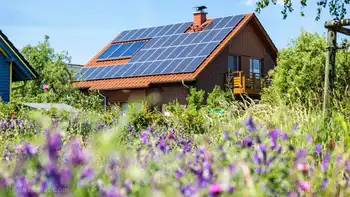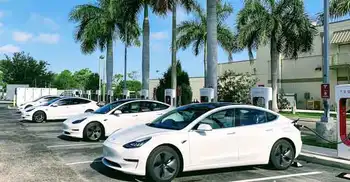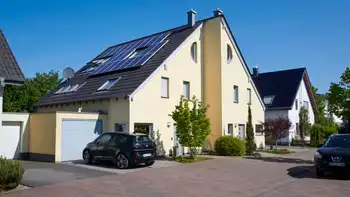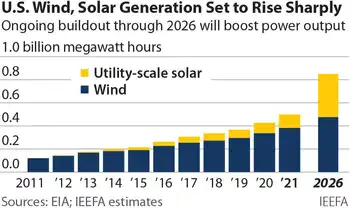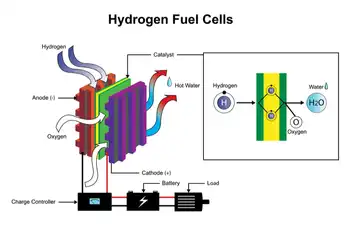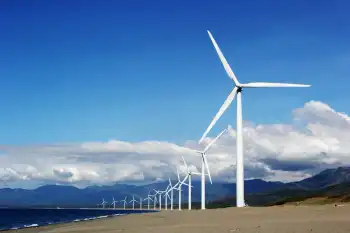0 to 180 km in 10 minutes: B.C. Hydro rolls out faster electric vehicle charging
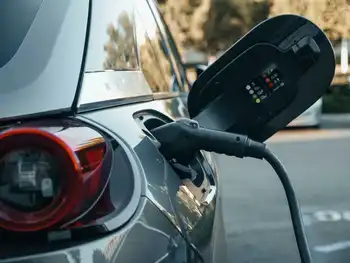
Arc Flash Training CSA Z462 - Electrical Safety Essentials
Our customized live online or in‑person group training can be delivered to your staff at your location.

- Live Online
- 6 hours Instructor-led
- Group Training Available
B.C. Hydro fast EV charging stations roll out 180 kW DC fast chargers, power sharing, and rural network expansion in Surrey, Manning Park, Mackenzie, and Tumbler Ridge to ease range anxiety across northern B.C.
Key Points
180 kW DC chargers with power sharing, expanding B.C.'s rural EV network to cut range anxiety and speed up recharging.
✅ 180 kW DC fast charging: ~180 km added in about 10 minutes
✅ Power sharing enables two vehicles to use one unit simultaneously
✅ Expands rural charging coverage to cut range anxiety for northern B.C.
B.C. Hydro has unveiled plans to install new charging stations it says can add as much as 180 kilometres worth of range to the average electric vehicle in 10 minutes.
The utility says the new 180-kilowatt units will be added to its network, expanding stations in southern B.C. as soon as this fall, with even more scheduled to arrive in 2024.
The first communities to get the new faster-charge stations are Surrey, Manning Park and, north of Prince George, Mackenzie and Tumbler Ridge, while the Lillooet fast-charging site is already operational.
B.C. Hydro president Chris O'Riley says both current and prospective electric vehicle owners have said they want improved coverage in more rural parts of the province in order to address range anxiety, as the utility has warned of a potential EV charging bottleneck if demand outpaces infrastructure.
"We are listening to feedback from our customers," he said.
The new stations will also be the first from B.C. Hydro to offer power sharing, which lets two different vehicles use the same unit to charge at the same time.
The adoption of electric vehicles in B.C. is much higher in southern urban areas than rural, northern ones, according to statistics from the provincial government made available in 2022, as the province leads the country in going electric according to recent reports.
The figures showed about one in every 45 people owns a zero-emission vehicle in the southwest regions of the province, but that number drops to one in 232 in the Kootenays, where the region makes electric cars a priority through local initiatives, and one in 414 in northern B.C.
The number of public charging stations closely corresponds to the number of zero-emission vehicles in various regions.
The Vancouver area has more than 500 fast-charging ports, according to ChargeHub, a website that tracks charging stations in North America.
In contrast, the route from Prince George to Fort Nelson via Dawson Creek along Highway 97, part of the B.C. Electric Highway network connecting the region — a distance of more than 800 kilometres — has just three locations where a vehicle can be charged to 80 per cent power in an hour or less, creating challenges for people hoping to travel the route.
The disparity is also clear in a just-published analysis from the non-profit Community Energy Association, which acts as an advisory group to government associations.
It found that while there is roughly one charging port every three square kilometres in Metro Vancouver, the number drops to one every 250 square kilometres in the Regional District of East Kootenay and one every 3,500 square kilometres in the Peace River Regional District, in the province's northeast.
"The more infrastructure we can get across the region ... the more the adoption of electric vehicles will increase," said the association's director of transportation initiatives, Danielle Weiss.
"We are excited to hear that B.C. Hydro is also viewing rural areas as a key focus for their new, enhanced charging technology."
B.C. Hydro says it currently has 153 charging units at 84 locations across the province with plans to add an additional 3,000 ports over the next 10 years, with provincial EV charger rebates supporting home and workplace installations as well.





